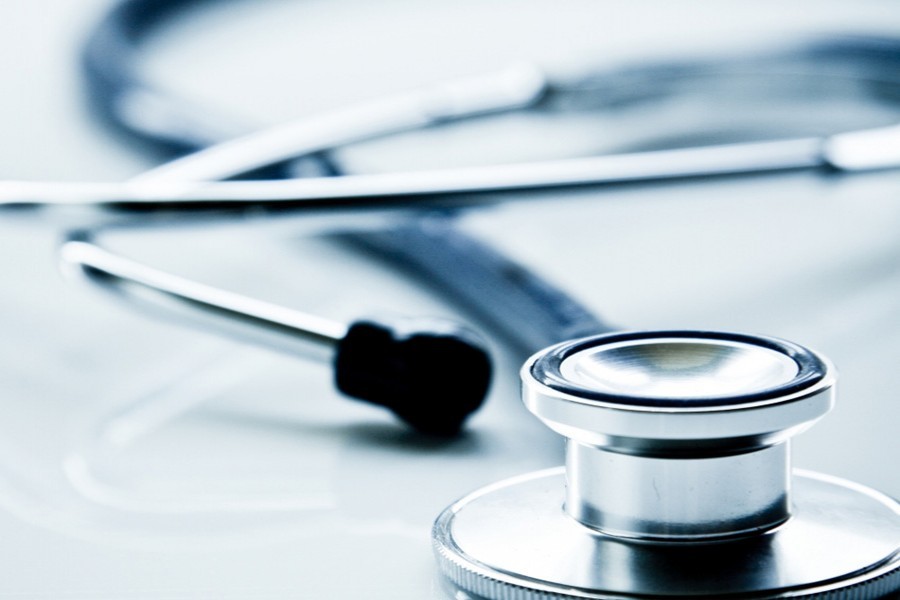
Published :
Updated :

The government, to a great extent, does have a laissez-faire attitude when it comes to fixing consultation fees by doctors both at private hospitals and their own chambers. The same is true in the case of fees for diagnostic tests done by private hospitals and laboratories.
The Ministry of Health and Family Welfare has a legal instrument under its command, but it is, seemingly, unwilling to use it for the benefit of the patients. Volumes have been said and written over the years, the ministry has preferred to be indifferent. However, such indifference to many vital issues is one of the traits that the health officials do exhibit very often. The ongoing Covid-19 pandemic has been a testimony to that fact.
Back in 1982, late military dictator General Ershad promulgated an ordinance, styled, The Medical Practice and Private Clinics and Laboratories (Regulations) Ordinance In an attempt to streamline the operations of the private clinics and diagnostic centres. The ordinance had many holes, yet it was the first move to regulate the burgeoning private health industry.
The ordinance did make it clear that no hospital or clinic will be allowed to start operating without a valid licence issued by an appropriate government authority. But this particular provision of the ordinance could not stop the entry of unauthorised private hospitals and clinics in the health sector. A good number of hospitals and clinics did continue their business without getting their licences renewed for year after year. How it happened could be anybody's guess.
Only after the very recent Regent Hospital scam, the DGHS had issued a notification asking the private hospitals and clinics to get their licences renewed within a stipulated date. There was a rush for licence renewal. It is, however, widely suspected that a good number of these entities are not eligible for licences. Yet they managed the same only by greasing the palms of a section of unscrupulous officials in the DGHS.
The 1982 ordinance did fix rates for all diagnostics tests. In the initial years of the military rule of Ershad, all concerned did follow the rates, but by 1986 things had returned to the old ways. Actually, the government, if it was willing to do so, could make good use of the ordinance for the greater benefit for both diagnostic centres and patients. It could amend the relevant schedule of the ordinance from time to time to fix the rates for diagnostic tests keeping in view the interest of both sides.
As the authorities have preferred to remain indifferent, the hospitals and clinics are fleecing poor patients at will. The fees of different tests vary widely between government health facilities and the private ones. In many cases, the difference is as high as 500 to 600 per cent. A number of studies have found a huge gap between the fees and the cost involved in diagnostic tests.
A good number of small and medium scale diagnostic centres might be willing to fix charges at reasonable rates, but they cannot do that for a different reason. When big names fix the rates at a high level, it becomes difficult for the lesser ones to make the difference by a big margin. If they do, the people might raise questions about the quality of their diagnostic tests.
One particular example can be cited here. A multinational diagnostic laboratory, originating in India, allegedly, charging much higher test fees in Bangladesh than those in India. Why blame that laboratory? It is just taking advantage of the situation prevailing here.
The government taking the 1982 ordinance as the legal umbrella should constitute a committee after every two to three years with experts in the relevant fields, health sector people and cost management accountants to fix fees for diagnostic tests.
Identically, the people are being subjected to a sort of financial exploitation by a section of so-called senior and high-profile doctors who have been charging high consultation fees. Doctors having the status of professor or senior consultants are now charging consultation fees ranging between Tk1800 and Tk 2000. It is not that only rich people do take the services of these doctors. The poor and low-income people, at times, are left with no option other than visiting the senior and high-profile doctors. They find the doctors' fees quite a burden.
Besides, on an average, doctors do spend 10 to 15 minutes to see a patient. The money taken for giving such a small amount of time, by any measure, is too high.
None wants the owners of private hospitals and clinics and physicians to be unnecessarily generous. The people's demand is a minimum. They feel that while fixing their fees for diagnostic tests or consultation those should be fair and reasonable.
The fact remains that they would never do that voluntarily. Someone has to step in to help poor patients. None other than the government is suitable for the job.


 For all latest news, follow The Financial Express Google News channel.
For all latest news, follow The Financial Express Google News channel.